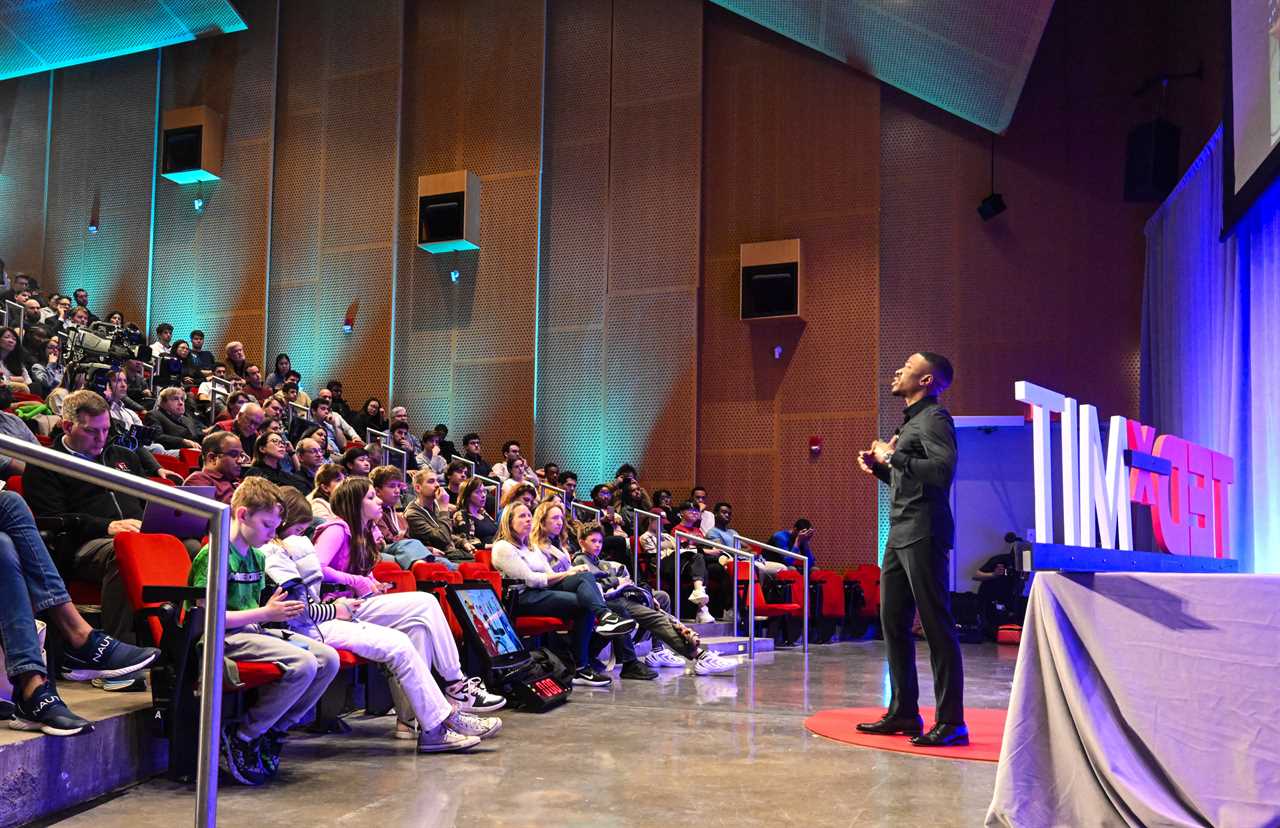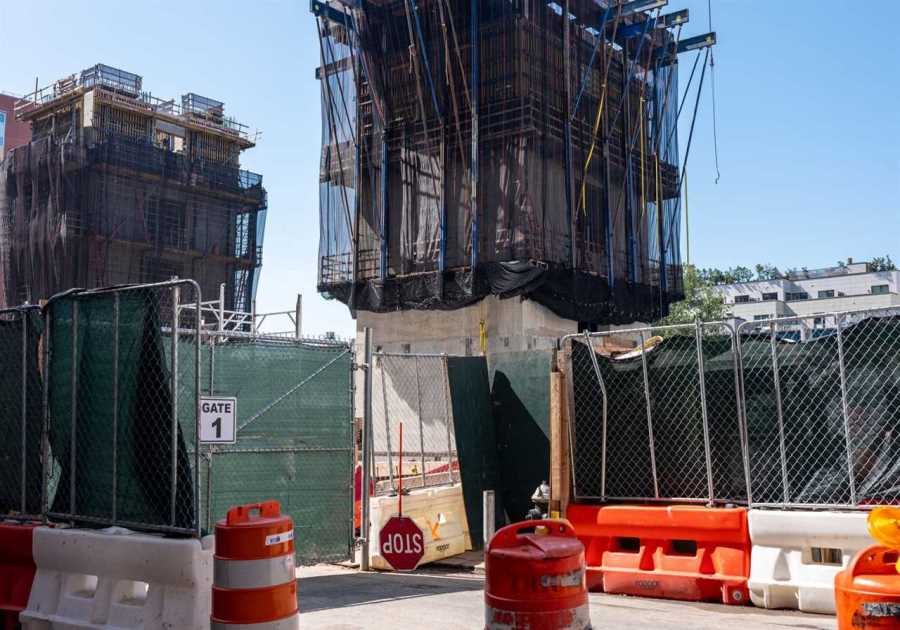As an international student at MIT, I find that the privileges I’ve experienced in the States have made me even more conscious of my nation’s struggles. Brief visits home remind me that in Jamaica, I can’t always count on what I often take for granted in Massachusetts: water flowing through the faucet, timely public transportation, a safe neighborhood to live in. And after working hard in school for years so my family and I won’t have to struggle so much to meet our basic needs, I’ve recently been challenging myself to think about the needs of nations too. Being from a developing nation, I am very aware of the urgent need for sustainable development, which the UN defines as “development that meets the needs of the present, without compromising the ability of future generations to meet their own needs.”
Jamaica is among the countries least responsible for the acceleration of global warming, yet it is already facing some of its worst effects. Many Jamaicans can’t afford air-conditioning to cope with the extreme heat, and in my city, many of the trees that once provided shade are being cut down to build apartments, leaving people sweltering in a concrete jungle. Even if ambitious net-zero emissions targets are met, these severe consequences may continue to worsen for some years.
Beyond significantly lowering the standard of living for the poor and lower-middle classes, climate change is also threatening agriculture and tourism, two major sources of Jamaica’s GDP. Given that the country is already struggling with crime and widespread poverty, what’s going to happen as climate change continues causing droughts to worsen, beaches to shrink, and energy bills to rise?
My MIT degree could definitely help me migrate to another country with a higher standard of living. But if young people like me leave these critical problems for someone else to solve, then what will the future look like for my family, friends, and neighbors?
I grew up wanting to be a physician, but at MIT I became significantly more interested in the health of communities, the planet, and the economy. I decided to major in environmental engineering as a step toward addressing the social, economic, and environmental dimensions of issues like climate change, pollution, and water management. Then I took advantage of opportunities to attend conferences where I could gather with experts, industry leaders, and other young people eager to tackle these issues. Last fall I was elated to be selected as one of MIT’s six student delegates to COP28, the 28th Conference of the Parties to the UN Framework Convention on Climate Change. Some 84,000 attendees would converge in the United Arab Emirates over the course of two weeks in November and December for the world’s largest global climate conference. I would be among those attending the second half.
We can’t wait for someone else to address the crises affecting not only our generation but also those to come.
After a 12-hour nonstop flight, I landed in the UAE around 7:30 p.m. local time and woke up early the next morning ready to get down to business. I was tired, but it was go time. Having attended the Global Youth Climate training program and MIT’s pre-COP28 sessions, I had spent a lot of time thinking about how to make the most of the conference. There were hundreds of plenary meetings, pavilions, side events, and booths to choose from. I combed through the COP schedule each day, noting events with themes relevant to developing nations and those in which I would likely find the leaders I wanted to connect with.
I spent the week zipping from building to building in the enormous Dubai Exhibition Centre, listening to panels, presentations, and press conferences, as well as questioning speakers, observing negotiations, taking copious notes on my iPad, and networking. A highlight was getting to interview some of the senior Jamaican delegates. I shared with them my long-term plan to help the Caribbean adapt to climate change and develop sustainably. UnaMay Gordon, one of Jamaica’s leading climate-change specialists, gave me a memorable piece of advice: Be present, represent youth, and bring other young people along to engage with these issues. I was glad to receive the Jamaican delegates’ insights—and their contact information. I took full advantage of the opportunity to approach experts and introduce myself as an MIT undergraduate. It was my first COP, and I was a man on a mission.
I left the UAE even more determined to support sustainable development, eager to bring about positive change in the MIT community during my final semester on campus—and feeling I had a lot of work to do before graduation. Progress toward becoming a more sustainable society cannot just rely on the relatively slow process of persuading governments to pass laws that enact COP agreements. Individual COP attendees play a pivotal role in supporting the sustainability transition by helping their communities take action.
For my last semester, I decided I could have the most impact by helping implement a campus sustainability initiative, sharing my knowledge and experiences, and encouraging more undergraduates to get involved in sustainability efforts. I started by attending the Sustainability Connect 2024 meeting run by the MIT Office of Sustainability (MITOS), which led to my joining the MIT Food Waste Fighters and working to address the need for better separation of garbage in our campus dorms to help produce biofuels and reduce methane emissions from food waste in landfills. This gave me experience implementing on-the-ground strategy to take on a problem that is also very relevant to developing nations.

Meanwhile, I dove into organizing a student-led series of sustainability talks hosted by my department’s civil engineering society, Chi Epsilon, in collaboration with MITOS and the MIT Climate and Sustainability Consortium (MCSC). As an MCSC scholar, I worked on writing an opinion piece and a research article on my work analyzing earthquakes induced by carbon dioxide sequestration. I was also chosen to give a talk at TEDx MIT in April on how MIT can equip undergrads so they’re ready to seize opportunities to support the sustainability transition.
It was a lot to tackle on top of my classes, but I really wanted to do all I could in my last few months to galvanize the MIT community. And at the same time, I wanted to remind everyone of the importance of having empathy for those who are most vulnerable to—and least responsible for—the consequences of unsustainable behavior and of innovation that doesn’t factor in sustainability.
I hope my work empowers more MIT undergraduates to step up and help tackle the many obstacles to achieving sustainable development while setting the stage for a more just society. We can’t wait for someone else to address the crises affecting not only our generation but also those to come. We need more minds and hands to work on ensuring that the places we live remain livable.
Runako Gentles ’24 plans to return to Jamaica upon graduation and will begin a master’s program in environmental engineering at Stanford in the fall.
------------Read More
By: Runako Gentles ’24
Title: I went to COP28. Now the real work begins.
Sourced From: www.technologyreview.com/2024/04/23/1090222/i-went-to-cop28-now-the-real-work-begins/
Published Date: Tue, 23 Apr 2024 21:00:00 +0000
.png)





